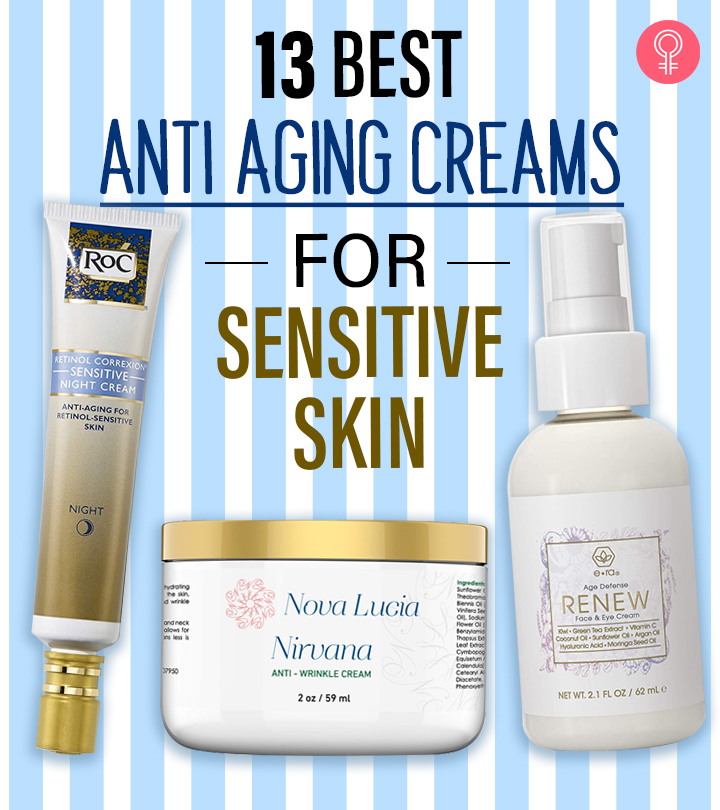Sensitive Skin and Anti-Aging Treatments

What Causes Sensitive Skin?
1. Genetics
Genetics play a significant role in determining whether you have sensitive skin or not. If your family has a history of skin sensitivity, you are more likely to have it too.
2. Environmental Factors
The environment you live in can also affect your skin's sensitivity. Exposure to pollution, harsh weather conditions, and UV rays can cause your skin to become more sensitive and prone to damage.
3. Hormonal Changes
Hormonal changes, such as those that occur during menopause, can also make your skin more sensitive. This is due to a decrease in estrogen levels, which can result in thinner, drier, and more fragile skin.
4. Skincare Products
Using the wrong skincare products or using them incorrectly can also cause your skin to become more sensitive. Ingredients such as fragrances, alcohol, and preservatives can irritate your skin and cause redness, itching, and dryness.
The Best Anti-Aging Treatments for Sensitive Skin
1. Retinoids
Retinoids are a form of vitamin A that can help reduce the appearance of fine lines, wrinkles, and age spots. They work by stimulating collagen production and increasing cell turnover. However, retinoids can also cause skin irritation, especially in people with sensitive skin. To avoid irritation, start with a low concentration and gradually increase it over time.
2. Hyaluronic Acid
Hyaluronic acid is a natural substance found in the skin that helps retain moisture and keep it plump and hydrated. As we age, our skin produces less hyaluronic acid, leading to dryness, fine lines, and wrinkles. Applying a hyaluronic acid serum can help replenish your skin's moisture levels and improve its texture.
3. Vitamin C
Vitamin C is a powerful antioxidant that can protect your skin from free radical damage and stimulate collagen production. It can also help brighten your skin and reduce the appearance of dark spots. However, vitamin C can be irritating to sensitive skin, so it's essential to choose a gentle formula.
4. Niacinamide
Niacinamide is a form of vitamin B3 that can help reduce inflammation, increase hydration, and improve skin elasticity. It can also help reduce the appearance of fine lines and wrinkles. Niacinamide is gentle on the skin and can be used by people with sensitive skin.
The Pros and Cons of Anti-Aging Treatments for Sensitive Skin
Pros:
- Can improve the appearance of fine lines, wrinkles, and age spots
- Can increase collagen production and cell turnover
- Can brighten your skin and reduce the appearance of dark spots
- Can hydrate your skin and improve its texture
Cons:
- May cause skin irritation, redness, and dryness
- May not be suitable for people with extremely sensitive skin
- May take time to see results
- May be expensive, depending on the product
Conclusion
Having sensitive skin can make it challenging to find anti-aging treatments that work effectively. However, by choosing gentle formulas and gradually increasing their concentration, you can improve the appearance of your skin without causing irritation. It's also essential to protect your skin from environmental damage by wearing sunscreen and avoiding harsh weather conditions.
FAQs
1. Can I use anti-aging treatments if I have sensitive skin?
Yes, you can use anti-aging treatments if you have sensitive skin. However, it's essential to choose gentle formulas and gradually increase their concentration to avoid irritation.
2. What ingredients should I avoid if I have sensitive skin?
If you have sensitive skin, you should avoid ingredients such as fragrances, alcohol, and preservatives, which can irritate your skin and cause redness, itching, and dryness.
3. How often should I use anti-aging treatments?
The frequency of use depends on the product and your skin's sensitivity. It's best to start with a low concentration and gradually increase it over time. You should also follow the product's instructions for use.
4. Can I use natural remedies for anti-aging?
Yes, you can use natural remedies for anti-aging, such as coconut oil, honey, and aloe vera. However, it's essential to do a patch test first to avoid any adverse reactions.
